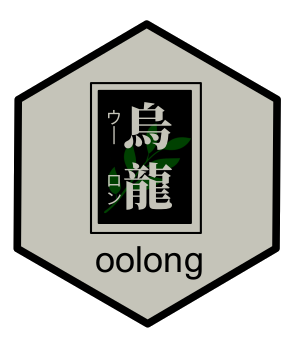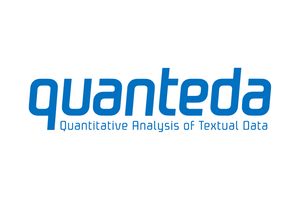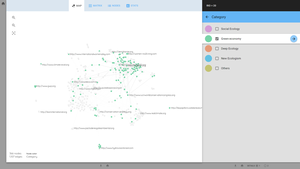Concept Grants from Sage
Sage's Concept Grant program funds innovative products and tools aimed at enhancing social science education and research. This year, we've expanded our focus to include technology-driven tools for teaching and learning in the social sciences in response to the high volume of applications emphasizing these aspects.
This year, we’re offering three awards, each valued at £8,000, or its equivalent in other currencies. The program remains open to applicants from nearly all countries.
The three awards are intended to support new technological solutions across the following areas:
Teaching: Enhancing the role of professors and lecturers in teaching social sciences by providing support and facilitation tools.
Learning: Improving the learning experience of students in social science courses and throughout their social science degree programs.
Doing Research: Developing advanced research software tailored for academic research in the social sciences.
Regardless of the grant outcome, we are committed to supporting your endeavors and are eager to explore potential collaborative opportunities based on your ideas. Please do not hesitate to reach out - email researchmethodscommunity@sagepub.com.
Application Information
There are three grant amounts available, each valued at £8,000.
To qualify for the awards, you must have:
Identified a problem or challenge area within social science teaching, learning, or research, supported by evidence from market research, surveys, or similar methodologies. You must clearly define this problem in your Pitch.
A prototype of your tool that works and that we can test. If your grant request includes making your prototype available outside a local host, please include a link to a 3-minute recorded demo.
For all three awards, we will look favorably on ideas that have wide-scale applicability within the social sciences.
Before applying, please note that we will NOT shortlist the following types of applications:
Research project proposals.
Proposals for tools that are not usable by faculty/students/researchers beyond you/your team and/or project.
Proposals for tools in biology, chemistry, physics, or any other discipline not within the social sciences. (We may consider, on a case-by-case basis, tools developed within other disciplines and where the applicant has made substantial progress in implementing them within a social science discipline).
Proposals for tools related to writing, citing, or publishing papers, peer-review, grant finding, application submission, collaboration finding, research dissemination, or any other task outside the primary research and analysis process. (If you are developing a tool in this space, we may be interested in hearing from you in another capacity: please contact us at researchmethodscommunity@sagepub.com).
Proposals for tools for bibliographic analysis or literature reviews.
Proposals for tools to manage, preserve, and archive data.
We will not consider proposals that do not fit within the teaching, learning, and research remit. If you are unsure whether you qualify, please get in touch at researchmethodscommunity@sagepub.com.
Deadline for applications: June 16, 2024, 11:59 pm PDT.
Click the link below to complete an application form for the £8,000 Concept Grant. There is only one form for all three awards.
Timeline for Applicants
Interviews for shortlisted applications will be conducted between July 8 - July 19, 2024.
Winners will be notified in August 2024.
Please read our blog post for advice to prospective applicants. If you have any questions about the Sage Concept Grants, you can contact us at researchmethodscommunity@sagepub.com.
Sage Concept Grants are available to fund direct project costs but not overheads. Direct project costs include software development, market research, workshops, server/ hosting costs, and equipment. There is no requirement on the license; we accept both open source and commercial applications. Applications are open to residents of nearly all countries.
2023 Winners
£15,000 Concept Grant winner
GailBot is an automatic transcription system for conversation analysis. It is designed to help social scientists in generating conversation analysis transcripts for their research. By automatically transcribing paralinguistic features like overlaps, intonation, and silences, it offers researchers a deeper understanding of the subtle nuances and complexities of communication.
£2,000 Concept Grant winners
BigKnowledge is advancing the discoverability and integration of social science tools through knowledge ecosystem services.
Swara supports survey data collection from participants with disabilities.
Annotiva is an AI-based coding system that carries out and supports qualitative data analysis.
Gorilla’s Shop Builder is a tool that allows researchers to easily create a simulated and interactive online shop to gather rich behavioral datasets.
Protolyst optimizes the management, analysis, and extraction of insights from extensive qualitative data for the social sciences.
2022 Winners
£15,000 Concept Grant winner
Causal Map is a new online research tool, a way to code, analyse and visualise fragments of information about what causes what. Use it to make sense of what interviewees tell you in social science research. Use it to visualise stakeholders’ experiences of how a programme or intervention is working and create collective empirical ‘theories of change’.
£2,000 Concept Grant winners
Swahili Lexicon for Sentiment Analysis: The number of Swahili speakers is currently over 200 million and is growing to become a lingua franca for the African continent. The project aims to create a group of Swahili professionals to develop a Swahili Lexicon for sentiment analysis by developing common Swahili positive, negative, and stop words
Cognetto Extractor is a rapid, semi-automatic data extraction tool aimed at providing social and behavioral scientists with the fastest and most ergonomic way to extract document data for systematic reviews/meta-analyses.
Workflow-Integrated Data Documentation: An extension to the Jupyter Notebook environment that allows researchers to systematically explore and document the datasets they are creating and curating.
Automated Video Analysis (AUVANA) leverages recent advancements in computer vision and AI to reduce the need for manual analyses of video contents and help social scientists, especially those who have little knowledge of programming, performing more sophisticated video analyses. The beta version is already capable of automatic detection of objects, movement, shot boundaries, and tracking human faces.
Latent Code Identification offers an analytic framework designed to leverage the power of machine learning to classify textual data or qualitative evidence while fully leveraging the benefits of human reasoning in this classification process and in our sense-making processes. This framework was designed to mirror, as close as possible the line-by-line coding employed in manual code identification, but relying instead on latent Dirichlet allocation, text mining, MCMC, Gibbs sampling and advanced data retrieval and visualization. A set of outputs provides complete transparency of the classification process and aids to recreate the contextualized meanings embedded in the original texts.
2021 Winners
This year, the winner of Sage’s £15,000 Concept Grant is Empirica, a customizable virtual lab platform for conducting human-participant experiments. In addition, five software tools were awarded £2,000 each for concept testing and software development.
We spoke to each of the winners about their tools, and how they will benefit social science researchers:
£15,000 Concept Grant winner
Empirica
A customizable virtual lab platform for conducting human-participant experiments.
Abdullah Almaatouq and Nicolas Paton
Virtual labs present an exciting opportunity for asking fundamentally different types of questions and running larger, cheaper and more complex experiments than is possible in physical labs. Unfortunately, the potential of virtual lab experiments has been limited by the often-substantial programming and administrative effort required to launch them – effort that is often not transferable from one experiment to the next.
Empirica is built to support two different “revolutions” in experimental social and behavioral science:
High-throughput experiments in which researchers can run, in effect, thousands of experimental conditions that systematically cover the parameter space of a given experimental design. Researchers can define a set of dimensions along which the experiment can vary, then generate and sample the set of conditions to be used in the experiment.
Macro-level experiments in which the unit of analysis is a collective entity such as a group, market, or an organization comprising dozens or even hundreds of interacting individuals. Empirica is designed with multi-participant recruitment, assignment, and interaction as a core principle.
We hope Empirica will decouple flexibility from ease-of-use and open the door to an economy of software built around conducting new kinds of virtual labs experiments.
We will use the SAGE Concept Grant to hire a developer that can integrate more "components" into Empirica. The next on the list is integrating tools that allow for join typing and coding like Firepad. In addition, association with SAGE will provide legitimacy and increase visibility of Empirica – amongst users but also potential funders.
£2,000 Concept Grant winners
Multytude
Hatice Ugurel, Yalin Solmaz and Hande Enes
As opposed to existing social media platforms where echo-chambers, low quality content and ongoing, unstructured ‘talk’ dominate, making them useless for research, Multytude is a conversation platform that allows its users to make sense of the conversation for authentic insights.
We achieve this goal via our unique UX/UI that layers the conversation, putting the user in control of how they’d like to explore and engage, and our natural language processing that provides automated summaries of conversations. We think this creates a new method for social science researchers to collect data about people’s opinions in a more robust, authentic and collaborative manner
The SAGE Concept Grant will help us validate the following use cases for the research community so we can understand and deploy additional product features geared towards social scientists.
A new method of qualitative research instead of online surveys, focus groups, etc. allowing researchers to gain unrestricted, collaborative feedback.
A portal for academic events where participants can gather their discussion topics and opinions on Multytude before, during and after the official sessions with insights at the end. This would also allow participants to network based on opinions, not just names and titles of the participants.
AcademicTwitteR Studio
An R package that makes the new Academic Research Product Track more accessible to researchers.
Christopher Barrie and Justin Chun-ting Ho
Social scientists use Twitter for a wide variety of applications in the applied social sciences. Many access Twitter data using the official API, which was recently updated to provide academics with much expanded access. While some have the capabilities to use different libraries in popular programming languages (e.g., R and Python) to query the API, others do not.
Our proposal to provide a user interface (academictwitteR Studio) to query the Twitter v2 Academic Research Product Track will allow practitioners who lack programming knowledge to query the Twitter API according to user-specified parameters and download the resulting data.
The SAGE Concept Grant will be enormously beneficial in providing us with the necessary means to pay for the server space and research assistance required to develop this software.
Intelliplanner
A software application to guide students and researchers in planning, mapping, and making decisions about the methods used in their social research projects.
Willem Jan Horninge Roestenburg, Janus Roestenburg and Emmerentie Oliphant
Formulating workable research proposals based on the most appropriate research design remains a significant challenge for most social science students. Although extensive research knowledge is available in research methods textbooks, crafting the proposal remains a painful exercise, often requiring intense consultation with the study supervisor to get it right.
With Intelliplanner, we want to facilitate the learning process by introducing a novel Expert Software Application that supports researchers' methods decisions more efficiently. Intelliplanner is like a study supervisor looking over the student's shoulder, suggesting different options and designs and reminding them of the implications and limitations of their choices. The application intelligently suggests different design options as the user answers specific questions. In this way, Intelliplanner progressively reveals designs narrowed down to the point of making an optimal decision.
The SAGE Concept Grant will be used to research and refine the initial progressive reveal algorithm within the X-O-P logic and develop a working model of the Intelliplanner Software Application. The software will be web-based, and we would like to test it on two samples of postgraduate students as part of the project.
REFI-QDA Project Exchange Standard
An open access and free standard to enable the transfer and accessibility of qualitatively analysed data across CAQDAS tools.
Christina Silver, Kristi Jackson, Fred van Blommestein and Graham Gibbs
The REFI-QDA Exchange Standard supports researchers undertaking qualitative data analysis by enabling data to be transferred from one CAQDAS-package to another, therefore providing access to a greater range of analysis tools. The free and open-source standard has four key benefits:
Collaboration on one set of qualitative data among researchers using different software
Continued use of data when researchers move to institutions with a site license for a different CAQDAS-package
Archiving of research results and analysis process in a neutral format
More pragmatic and agile discussions of similarities and differences among CAQDAS-packages by instructors of qualitative data analysis (QDA)
The SAGE Concept Grant will help us in three ways: First, to test the exchange of data between CAQDAS-packages in order to facilitate the development of the REFI-QDA Exchange Standard. Secondly, the current version of the Standard results in some inconsistencies/data-loss with respect to audio-visual data. The use of these data are increasing (especially during COVID-19) and this is therefore a key focus moving forward. Thirdly, to develop testing datasets relevant across disciplinary/methodological contexts.
SMIDgen
A scalable, mixed-initiative dataset generation tool for online social science research.
Matthew Louis Mauriello
Online social networks provide a naturalistic view into the way users interact with technologies, communities, and each other. Recent work has leveraged Reddit to investigate suicidality, Twitter to study activism, and YouTube for the usage of touchscreen devices. Time and again researchers replicate the same infrastructure for this work, spending valuable time “rebuilding the wheel.”
We will use funding from the SAGE Concept Grant to develop our SMIDGen platform to support human-in-the-loop machine learning that reduces the time it takes to conduct data collection and annotation such that researchers can spend less time wrangling data and more time synthesizing it into meaningful results.
2020 Winners
£15,000 Concept Grant winner
Knowsi
Knowsi empowers social science researchers to manage participant consent in line with data protection regulations. It provides a user-friendly platform for collecting and managing consent agreements, and gives participants full control of their data, with visibility of their consents and the researcher’s data policies. Knowsi was awarded £15,000 in 2020 to scale up the initial prototype and bring the product to a wider academic market.
Watch the webinar recording below to find out how Knowsi is helping researchers design trust relationships in research.
£2,000 Concept Grants winners
Oolong
Oolong is an R package developed by Chung-hong Chan that provides a set of standards and benchmarks that enable researchers to test the validity of their content analysis models.
Homicide Media Tracker
The Homicide Media Tracker by Nechama Brodie will enable the collection and enhanced digital curation of homicide-in-media data from multiple media sources.
Measuring experience in VR
New software for measuring experience in VR developed by Ruth Pijls and Brenda Groen will enable researchers to measure participants’ responses in real-time in a virtual environment.
Touch Capture Pro
Touch Capture Pro is an app for studying the social and cognitive effects of using smartphones and other touch-based devices, developed by Stoo Sepp.
ELA
The Exploratory Labeling Assistant (ELA) is a tool developed by Enrico Bertini for visually exploring, labeling and classifying large text corpora.
2019 Winners
Text Wash
Text Wash uses machine learning and natural language processing to anonymize personally identifiable text data, making it accessible to social scientists without compromising its usability for research.
Find out more in this video.
2018 Winners
Quanteda
Quanteda is a powerful, flexible, and user-friendly text analytic software tool that requires no programming experience to use and runs as a web application.
MiniVan
MiniVan is an easy-to-use tool that supports non-specialist social scientists in the visual analysis and online publication of networks.
DDNA
The Digital DNA Toolbox (DDNA) uses bioinformatics techniques to enable researchers to assess the veracity, trustworthiness, and reliability of content (and content producers) in online social networks and beyond.






